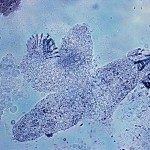About
 Peter CROMPTON – NIH, NIAID (Rockville – USA)
Peter CROMPTON – NIH, NIAID (Rockville – USA)
Antibody responses to Plasmodium falciparum infection and candidate malaria vaccines are generally short-lived in children, leaving them susceptible to repeated bouts of febrile malaria. Long-lived antibody responses depend on memory B cells (MBCs) and long-lived plasma cells that arise from germinal centers in secondary lymphoid organs in a process that requires T follicular helper (Tfh) cells. In longitudinal studies in Mali, where malaria transmission is intense and seasonal, we are investigating the B cell and Tfh cell biology underlying the inefficient acquisition of humoral immunity to malaria. We find that chronic malaria exposure is associated with an increase in atypical MBCs that resemble B cells expanded in persistent viral infections. Atypical MBCs express an array of inhibitory receptors and their B cell receptor signaling is stunted resulting in impaired B cell responses including proliferation, cytokine production and antibody secretion. In separate but related studies, we find that Malian children at baseline have circulating PD-1+CXCR5+CD4+ T cells that resemble germinal center Tfh cells phenotypically and functionally, and that within this population the CXCR3− subset is superior to the Th1-polarized CXCR3+ subset in helping B cells. Longitudinally, acute malaria in the same children drives a Th1 cytokine response, and accordingly, the less-functional Th1-polarized CXCR3+ subset is preferentially activated and its activation does not correlate with B cell and antibody responses. These data provide insights into the B cell and Tfh cell biology underlying the inefficient acquisition of humoral immunity to malaria and point toward the possibility of modulating B cell and Tfh cell responses to enhance malaria vaccine efficacy in endemic areas.
Site web du laboratoire : http://www.niaid.nih.gov/labsandresources/labs/aboutlabs/lig/malariainfectionbiologyandimmunology/Pages/default.aspx
Contact : Artur SCHERF (artur.scherf@pasteur.fr – Poste 86 16)

